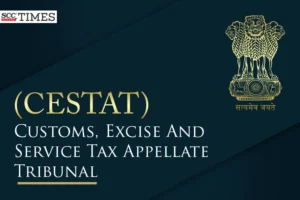Customs, Excise and Service Tax Appellate Tribunal, Mumbai: In a case wherein a question arose that whether the ‘Cheeselings’ introduced in 1956, by the Parle Products Private Limited (‘appellant’) was classifiable as ‘namkeen’, the Bench of CJ Mathew, Member (Technical) and Ajay Sharma, Member (Judicial) stated that the adjudicating authority’s classification seemed to be based on his personal familiarity with ‘namkeen’ as no authority was cited for drawing such distinction. The Tribunal stated that ‘Cheeselings’ was a peculiarly indigenous preparation. ‘Namkeen’ had not been defined either contextually in the notification or as a separate nomenclature in the tariff. Therefore, the Tribunal opined that the adjudicating authority had erred in concluding that ‘Cheeselings’ were not ‘namkeen’ and set aside the impugned order.
Background
The appellant was a manufacturer of biscuits, confectionary and similar products. For the period between January 2012 and December 2012, the appellant had availed the benefit on clearance of ‘Cheeselings’ claiming to be ‘namkeen’, classifiable against tariff item 2106 9099 of Schedule to Central Excise Tariff Act, 1985, which was entitled to the benefit of the notification dated 01-03-2006 (‘the notification’).
The appellant cause of grievance was that he was denied the benefits extended by notification and was also saddled with duty liability of Rs. 81,23,300 under section 11A of Central Excise Act, 1944 (‘the Act’), along with applicable interest under Section 11AA of the Act. Further, the appellant was also imposed with penalty under Rule 25 of Central Excise Rules, 2002.
The Adjudicating Authority in the impugned order held that the process of manufacturing ‘Cheeselings’ was different from ‘namkeen’ which, even by portrayal of the product as ‘namkeen’ did not suffice for the benefit of exemption. Thus, the issue in the present case was whether ‘Cheeselings’ introduced by the appellant in the Indian market in 1956, was a ‘namkeen’.
Analysis, Law, and Decision
The Tribunal observed that the adjudicating authority in the impugned order had stated that the process of manufacturing “Cheeseling” was totally different. Cheeseling products were not fried products and mainly made of Cereal flour, (Maida), oil, salt, etc. Thus, they could not be classified as “namkeen”. At the most they could be called as “Snacks Foods”. The adjudicating authority had stated that merely because the impugned products contain “Salt” or had salted taste, they could not be called as “Namkeen” and therefore, not entitled for benefit of the notification. The Tribunal stated that the adjudicating authority’s classification seemed to be based on his personal familiarity with ‘namkeen’ as no authority was cited for drawing such distinction.
The Tribunal stated that ‘Cheeselings’ was a peculiarly indigenous preparation. ‘Namkeen’ had not been defined either contextually in the notification or as a separate nomenclature in the tariff. Therefore, the Tribunal opined that the adjudicating authority had erred in concluding that the impugned goods were not ‘namkeen’ as there was no allegation of non-conformity with any prescribed description which rendered it impossible for us to determine such finding as legal and proper.
Thus, the Court set aside the impugned order and allowed the present appeal.
[Parle Products (P) Ltd. v. CCE, 2024 SCC OnLine CESTAT 912, decided on 05-09-2024]
Advocates who appeared in this case:
For the Appellant: Viraj Reshamwala, Advocate;
For the Respondent: P K Acharya, Superintendent (Authorized Representative).

